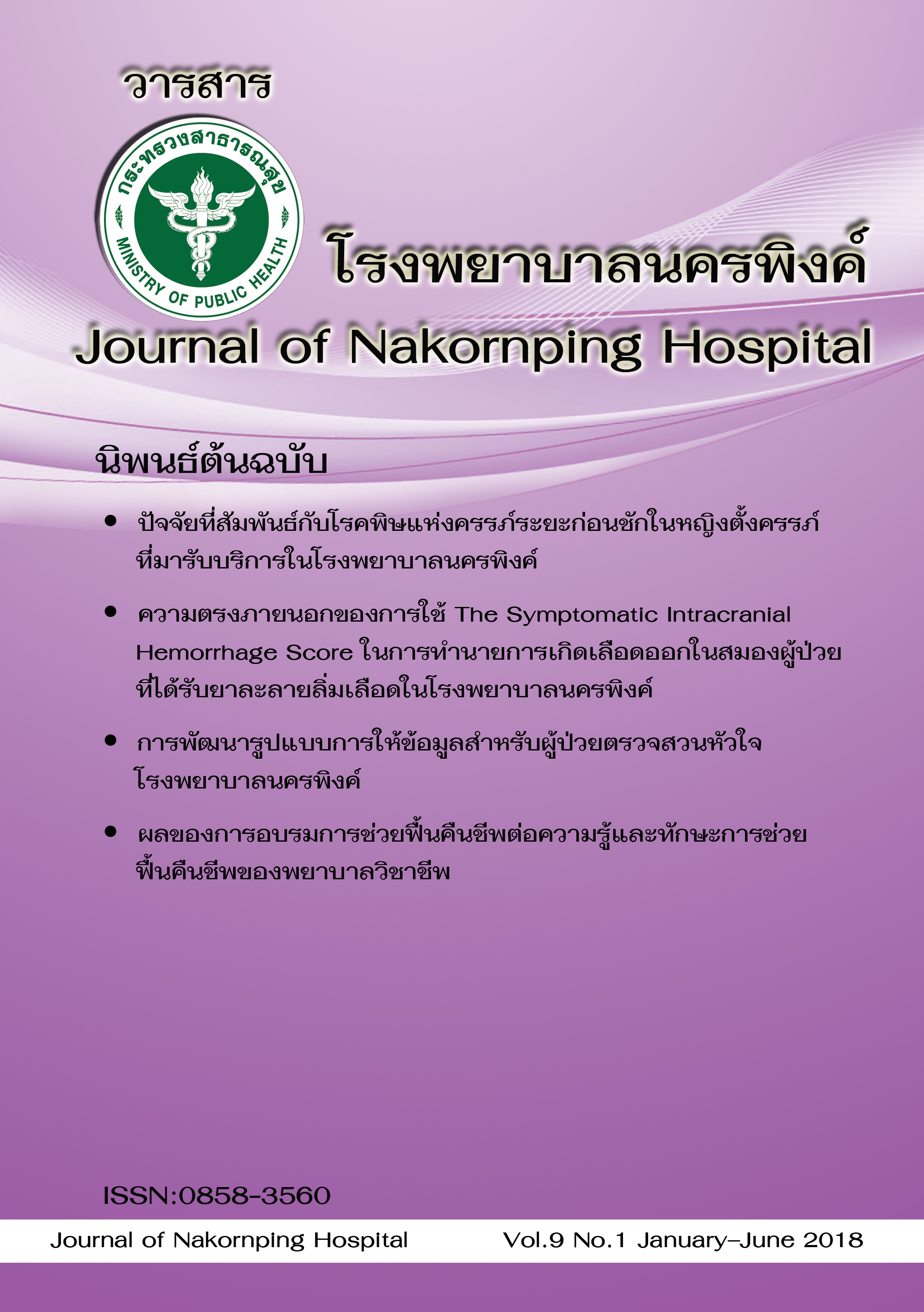Risk factors associated with preeclampsia in pregnant woman in Nakornping hospital
Keywords:
Risk factor, Preeclampsia, Pregnant womenAbstract
Preeclampsia is an important and common complication of pregnancy. Well known as one of the leading causes of death and disabilities among pregnant women and infants. The objective of this study is to determine risk factors associated with preeclampsia in pregnant women in Nakornping hospital. The research methodology was designed to address the purpose of the study, whereby etiognostic research with a retrospective case-control design involving 54 pregnant women with preeclampsia and 108 controls who gave births at Nakornping hospital between 1 October 2016 and 28 February 2018. Information was taken from medical records and antenatal care records. Data analysis was conducted by using ordinal and multivariable logistic regression. The risk factors that were significantly associated with increased risk of preeclampsia were pregestational body mass index 25- 29.9 kg/m2 (adjusted OR 3.12, 95% CI 1.24-7.86) and pregestational body mass index ≥ 30 kg/m2 (adjusted OR 6.64, 95% CI 2.14-20.58). The results suggested that in order to reduce the risk of preeclampsia the knowledge about weight control before pregnancy should be provided and surveillance for early detection of preeclampsia should be done in pregnant women with high pregestational body mass index.
References
2. รายงานสถิติประจําปี ปีงบประมาณ 2557-2560 ห้องคลอด โรงพยาบาลนครพิงค์ จังหวัด เชียงใหม่
3. Bartsch E, Medcalf KE, Park AL, Ray JG, High Risk of Pre-eclampsia Identification G. Clinical risk factors for pre-eclampsia determined in early pregnancy: systematic review and meta-analysis of large cohort studies. BMJ.
2016;353:i1753.
4. Luealon P, Phupong V. Risk factors of preeclampsia in Thai women. J Med Assoc Thai. 2010;93:661-6.
5. Pare E, Parry S, McElrath FT, Pucci D, Newton A, Lim K. Clinical Risk Factors for Preeclampsia in the 21st Century. Obstetrics & Gynecology[Internet]. 2014; [Cited October 2014] - Volume 124 - p 763–770. Available from Doi:
10.1097/AOG.0000000000000451
6. American College of O, Gynecologists, Task Force on Hypertension in P. Hypertension in pregnancy. Report of the American College of Obstetricians and Gynecologists' Task Force on Hypertension in Pregnancy. Obstet Gynecol.
2013;122:1122-31.
7. Cunningham F, Leveno K, Bloom S, Spong CY, Dashe J. Williams Obstetrics. 24th ed. New York: McGraw-Hill Education; 2014.
8. Fisher SJ. Why is placentation abnormal in preeclampsia? Am J Obstet Gynecol. 2015;213:S115-22.
9. Hubel CA. Oxidative stress in the pathogenesis of preeclampsia. Proc SocExpBiol Med. 1999;222:222-35.
Downloads
Published
How to Cite
Issue
Section
License
The articles that had been published in the journal is copyright of Journal of Nakornping hospital, Chiang Mai.
Contents and comments in the articles in Journal of Nakornping hospital are at owner’s responsibilities that editor team may not totally agree with.



